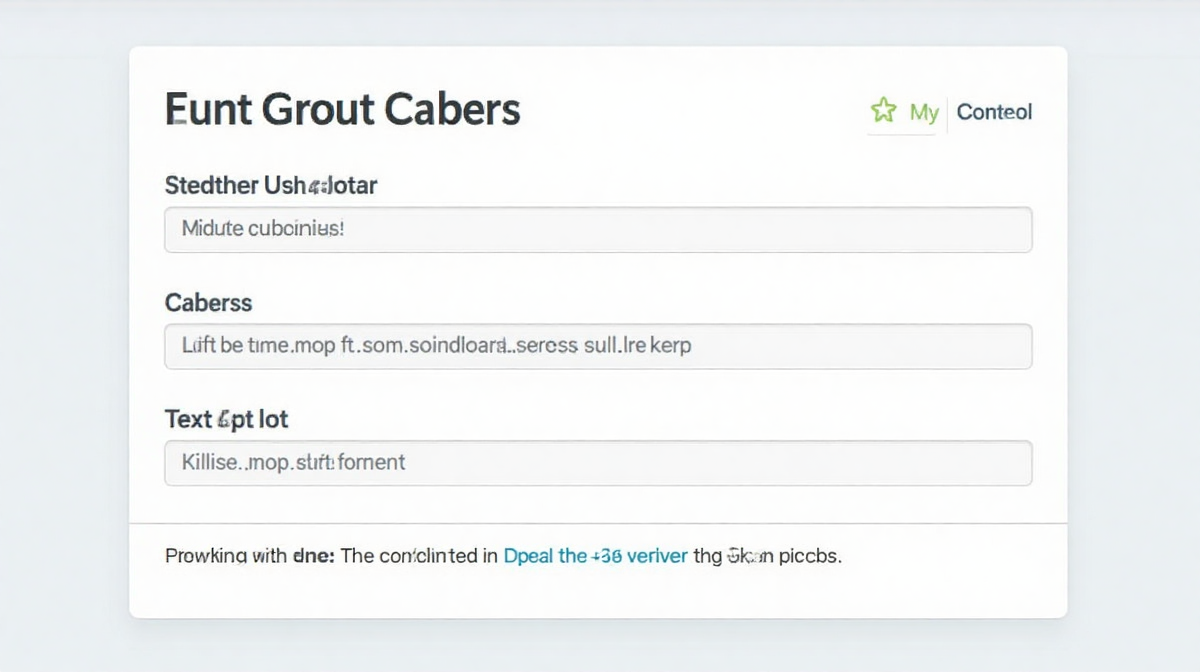Is 91.club Safe? The Truth Revealed
Hook: The Rise of 91.club & Initial Curiosity
In the ever-evolving world of online social networking and dating apps, new platforms emerge constantly, promising connection and companionship. One such platform gaining traction is 91.club, particularly within certain demographics. However, with increased popularity comes increased scrutiny, and a critical question arises: is 91.club safe for its users? This article delves into the intricacies of this platform, examining its features, security measures, and potential risks, providing a comprehensive assessment of its safety. We'll address whether the whispers of 91 club fake or real concerns hold weight.
Briefly Explain 91.club: What is it and what does it offer?
91.club positions itself as an online social and dating platform, aiming to connect individuals for various purposes – friendship, casual dating, or more serious relationships. It offers features common to many social apps, including profile creation, messaging, and the ability to browse potential matches based on location and preferences. The platform's appeal seems to stem from a user-friendly interface and a focus on building a community. However, the ease of creating profiles also raises questions about authenticity and security.
The Central Question: Is 91.club safe for its users? Addressing concerns & outlining the scope of the article.
The core concern surrounding 91.club revolves around user safety – data privacy, the prevalence of fake profiles, and the potential for scams. This article will investigate these concerns, examine the platform’s stated security measures, analyze independent reports and user feedback, and compare it to other similar platforms. We'll also briefly touch upon current events, like the excitement surrounding the tata ipl 2024 live score today and how online platforms can sometimes be exploited during peak interest periods.
Understanding the Safety Concerns
Data Privacy Concerns: What data does 91.club collect? How is it used?
Like most social platforms, 91.club collects a significant amount of user data, including personal information (name, age, location), contact details, and user-generated content (photos, messages). The platform’s privacy policy outlines how this data is used, primarily for providing and improving the service, personalizing user experience, and targeted advertising. However, concerns remain about the potential for data breaches and the sharing of information with third parties. Users should be wary of oversharing personal details, particularly financial information.
Fake Profiles & Scams: Common types of scams found on 91.club.
A major concern with 91.club, as with many online dating platforms, is the presence of fake profiles. These profiles are often created by scammers looking to exploit vulnerable users. Common scams include romance scams (building emotional connections to extract money), phishing attempts (tricking users into revealing personal information), and requests for financial assistance under false pretenses. The question of 91 club fake or real is a valid one, and users must exercise extreme caution.
Security Vulnerabilities: Potential issues with the platform’s security infrastructure
While 91.club likely employs standard security measures, no platform is entirely immune to security vulnerabilities. Potential issues include data breaches, where sensitive user information could be compromised, and vulnerabilities in the app’s code that could be exploited by hackers. Regular security audits and updates are crucial but are not always publicly disclosed.
Reported Issues
User reports are a vital source of information regarding platform safety. Online forums and review sites contain numerous accounts of suspicious activity on 91.club, including unsolicited messages, aggressive behavior, and reports of fraudulent profiles. Analyzing these reports helps to identify patterns and assess the overall risk level.
91.club's Safety Measures: What They Claim
Verification Processes: How does 91.club attempt to verify user identities?
91.club claims to employ verification processes to combat fake profiles. These processes may include phone number verification, email verification, and, in some cases, photo verification. However, these methods are not foolproof. Phone numbers can be acquired fraudulently, and photo verification can be bypassed using stolen images or deepfakes. The effectiveness of these measures remains questionable.
Reporting Mechanisms: How can users report suspicious activity or profiles?
The platform provides reporting mechanisms allowing users to flag suspicious activity or profiles. Users can report profiles for various reasons, including harassment, spam, and suspected fraud. However, the responsiveness of the platform to these reports is often criticized, with users claiming that flagged profiles remain active for extended periods.
Privacy Settings: Detailed explanation of available privacy controls.
91.club offers some privacy settings allowing users to control who can view their profile and contact them. Users can adjust their visibility settings and block specific individuals. However, these settings are not always intuitive, and some users may be unaware of the full extent of their privacy options.
Terms of Service & Community Guidelines: What rules does 91.club enforce?
The platform’s Terms of Service and Community Guidelines outline prohibited behavior, including harassment, hate speech, and the creation of fake profiles. However, enforcement of these rules appears inconsistent, and reports of violations often go unaddressed.
Independent Security Analysis & User Reports
Third-Party Reviews & Security Reports .
Reliable, independent security reports on 91.club are scarce. This lack of transparency raises concerns about the platform’s commitment to security. Most information comes from user reviews and anecdotal evidence.
Analysis of app permissions .
Analyzing the app’s permissions reveals that it requests access to several sensitive features, including location, contacts, and storage. While some of these permissions are necessary for the app’s functionality, others raise privacy concerns. For example, access to contacts could be used to identify potential matches without the user’s explicit consent.
Gathering User Experiences: Analyzing user reviews & testimonials .
User reviews are overwhelmingly mixed. Positive reviews often praise the platform’s user-friendly interface and the potential for meeting new people. Negative reviews frequently cite concerns about fake profiles, scams, and unresponsive customer support. Neutral reviews tend to be cautious, acknowledging both the potential benefits and risks. It's important to note that the excitement of events like the suryakumar yadav ipl 2024 performance can sometimes lead to increased activity on such platforms, and potentially, more scam attempts.
Real User Stories: Examples of successful connections vs. negative experiences.
Several users have reported positive experiences, forming genuine connections and friendships through 91.club. However, a significant number of users have shared negative experiences, including being targeted by scammers, receiving unsolicited explicit content, and encountering fake profiles.
Scam Reports & Frequency: Quantifying the reported risk level .
Quantifying the risk level is challenging due to the lack of official data. However, based on user reports and online discussions, the risk of encountering scams on 91.club appears to be relatively high.

Comparing 91.club to Other Dating/Social Platforms
Privacy & Security Features Comparison: 91.club vs. Tinder, Bumble, other popular apps.
Compared to established platforms like Tinder and Bumble, 91.club offers fewer robust security features. Tinder and Bumble have implemented more advanced verification methods, such as ID verification and background checks (though not always comprehensive). 91.club’s verification processes are less stringent, making it more vulnerable to fake profiles.
Reported Scam Rates: How does 91.club stack up in terms of scam incidents?
While precise data is unavailable, anecdotal evidence suggests that the reported scam rate on 91.club is higher than on more established platforms with stronger security measures.

Steps to Stay Safe on 91.club
Protecting Your Personal Information: Best practices for creating a secure profile.
- Use a strong, unique password.
- Avoid sharing sensitive personal information (address, financial details).
- Use a separate email address for your 91.club account.
- Be careful about the photos you share.
Identifying & Avoiding Scams: Red flags to watch out for.
- Be wary of profiles with overly flattering photos or vague descriptions.
- Be suspicious of users who ask for money or financial assistance.
- Be cautious of users who rush into a relationship or declare strong feelings quickly.
- Trust your instincts – if something feels off, it probably is.
Safe Dating Practices: Tips for meeting people offline safely.
- Meet in a public place.
- Tell a friend or family member where you’re going and who you’re meeting.
- Arrange your own transportation.
- Avoid excessive alcohol consumption.
Utilizing Platform’s Reporting Tools: How to effectively report suspicious behavior.
- Report any suspicious activity or profiles to 91.club.
- Block users who are harassing or threatening you.
- Take screenshots of any suspicious conversations or profiles.
Conclusion: The Verdict on 91.club's Safety
Recap of Key Findings: Summarizing the risks & safeguards.
91.club offers a platform for social connection, but it comes with significant risks. The platform’s verification processes are weak, the prevalence of fake profiles is concerning, and the reporting mechanisms are often ineffective. While the platform claims to prioritize user safety, its actions do not always align with its promises.
Final Assessment: Is 91.club ultimately safe to use? .
91.club is not inherently unsafe, but it requires a high degree of caution. Users should be aware of the risks and take proactive steps to protect themselves. The platform can be used safely with vigilance, but it's not a risk-free environment. Considering the current buzz around the 91 Club Game and increased user activity, being extra cautious is paramount.
Disclaimer: Emphasizing personal responsibility for online safety.
Ultimately, personal responsibility is paramount when using any online platform. Users should exercise common sense, be skeptical of strangers, and protect their personal information. No platform can guarantee complete safety, and it is up to each individual to take necessary precautions to protect themselves from harm.

